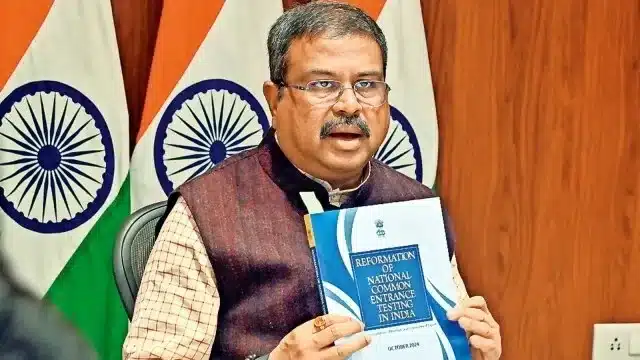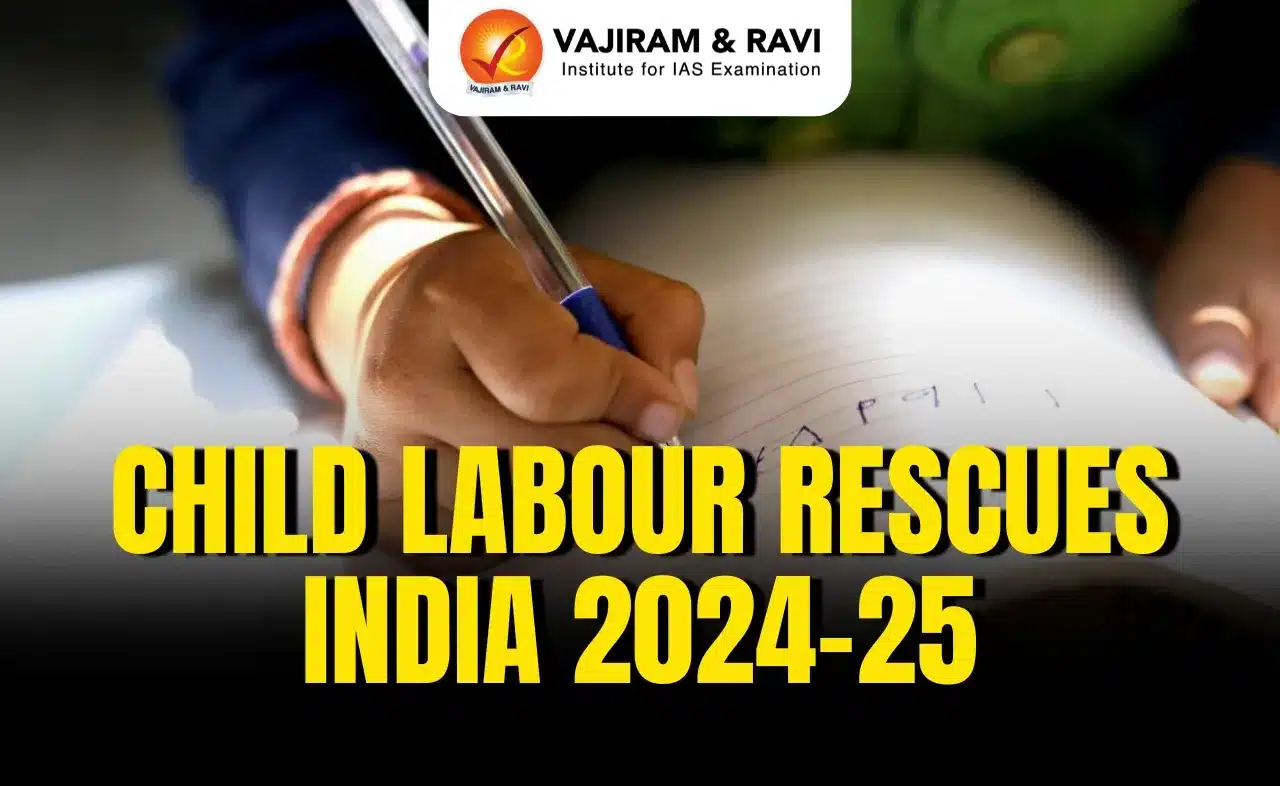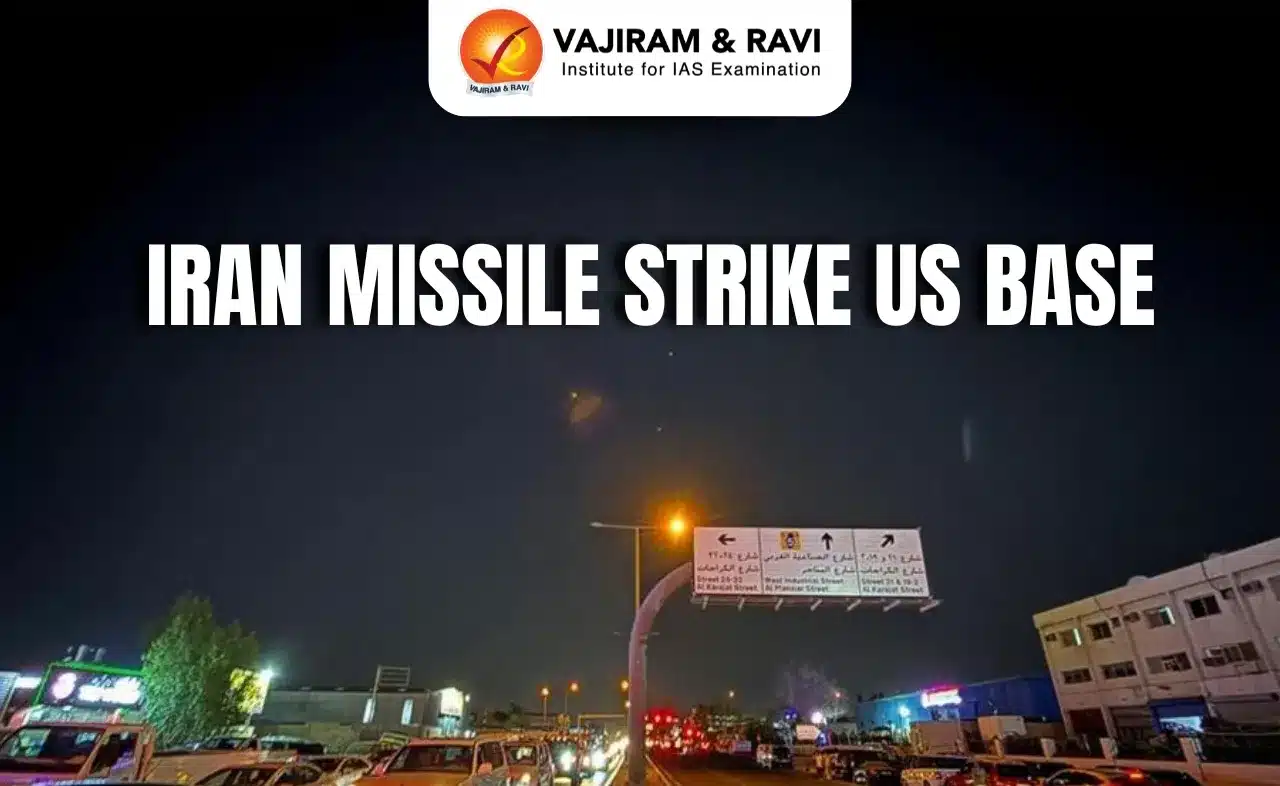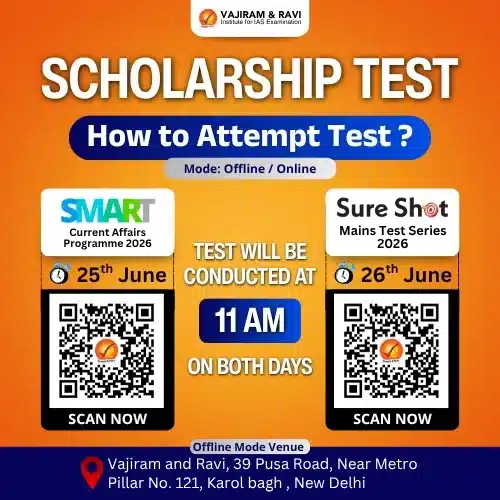What’s in today’s article?
- Why in News?
- What is the National Testing Agency (NTA)?
- Issues Faced by the NTA
- Key Recommendations of the High-Level Committee for Secure Examinations
- Conclusion
Why in News?
- A high-level committee, chaired by former ISRO chief K Radhakrishnan, has recommended significant reforms to ensure transparency and efficiency in conducting national entrance tests like NEET, CUET, and UGC-NET.
- Drawing parallels with the general election framework, these reforms aim to safeguard the integrity of the examination process and prevent malpractices.
What is the National Testing Agency (NTA)?
- About NTA:
- It was set up in 2017 as a specialist, self-sustaining and autonomous organisation under the aegis of the Union Ministry of Education.
- It is registered under the Societies Registration Act 1860, and falls under the Right to Information (RTI) Act.
- Its director general and governing body are appointed by the Union government.
- Background:
- In 2010, a committee comprising directors of IITs recommended establishing an autonomous and transparent body (NTA) through legislation, modelled after the Educational Testing Service (ETS) of the US.
- Prior to the NTA’s formation, various government bodies like the UGC, the CBSE, and central universities such as Delhi University and JNU conducted their own entrance examinations.
- Objectives: It aims to
- Conduct efficient, transparent and international standards tests in order to assess the competency of candidates for admission, and recruitment purposes.
- Undertake research on educational, professional and testing systems to identify gaps in the knowledge systems and take steps for bridging them.
- Identify experts and institutions in setting examination questions.
- Produce and disseminate information and research on education and professional development standards.
- Examinations conducted by the NTA:
- JEE (Main), NEET-UG, Common Management Admission Test (CMAT), Graduate Pharmacy Aptitude Test (GPAT), University Grants Commission-National Eligibility Test (UGC-NET), etc.
- The National Education Policy 2020 recommends a broader role for the NTA to conduct an entrance or aptitude test for all universities across the country.
Issues Faced by the NTA:
- Issue of accountability:
- Computer-based tests ensure that high volume can be processed in a short period of time.
- As the NIC [National Informatics Centre] does not have the capacity or IT infrastructure needed, third-party technical partners are being engaged.
- This takes accountability out of the government’s hands and leaves loopholes in the system which can be exploited by unscrupulous players.
- Shortage of manpower: The agency was set up with only about 25 permanent staff positions and its functions have been outsourced to technical partners from the very beginning.
- Absence of robust security mechanisms:
- These are needed to handle a large-scale pen-and-paper examination, including the
- Setting of the question paper and its encryption,
- Selection of external printing presses and exam centres,
- Transportation to printing presses,
- Storage and distribution to examinees at examination centres and
- Then the collection and transportation of answer sheets to evaluation centres.
- Each of these is a stage where malpractice can occur without robust security mechanisms.
- These are needed to handle a large-scale pen-and-paper examination, including the
- Cases of irregularities:
- The integrity of the NEET-UGwas compromised when the exam question paper was allegedly leaked.
- Similarly, the UGC-NET exam was cancelled a day after being conducted, following reports that its integrity had been breached.
Key Recommendations of the High-Level Committee for Secure Examinations:
- Election-style examination framework:
- State collaboration for test administration:
- A collaborative approach between the Centre and state governments to conduct these exams, similar to how elections are managed.
- The state administrative machinery, including district collectors, would play a crucial role in ensuring smooth execution.
- Presiding officers and protocols: Each testing centre will have an NTA-appointed “presiding officer” responsible for overseeing operations, akin to polling booth management during elections.
- Sealing and securing centres:
- Testing centres are to be sealed before exams and unsealed only in the presence of district administration and NTA officials.
- This procedure mirrors the election process, where EVM strong-rooms are locked and guarded.
- State collaboration for test administration:
- State and district-level committees:
- State-level committees: Headed by a Chief Secretary-nominated nodal officer, these committees will include representatives from state police, NTA, the Intelligence Bureau (IB), and the NIC.
- District-level committees: Led by district magistrates, to ensure the identification of secure testing centres and develop strategies for question paper transportation with police or paramilitary support.
- Background checks for centres: Testing centres will be vetted based on past records, ownership backgrounds, and intelligence inputs to avoid potential security breaches.
- Reducing dependence on 3rd-party agencies: Phasing out reliance on private test delivery agencies (TCS iON) and collaborating with Kendriya and Navodaya Vidyalayas to develop digital infrastructure for computer-based testing.
- Digi-exam system: Inspired by the DigiYatra model, the proposed “digi-exam” system will ensure candidate verification using biometric data and a one-time entry of primary identification information during the application process.
- CCTV monitoring and sanitised centres:
- Continuous CCTV monitoring of candidates during the exam.
- Sanitisation of computer-based testing centres by third parties, with additional checks by NIC and NTA representatives.
- District-level CCTV monitoring centres to oversee exam operations.
- Redefining NTA’s role: The NTA should focus solely on entrance exams for higher education, leaving recruitment exams for other bodies.
- Flexibility in exam modes: Regarding NEET, the decision on the mode of the exam – computer-based or pen-and-paper – will rest with the Health Ministry, with the NTA acting as a service provider.
Conclusion:
- The proposed reforms mark a significant shift towards ensuring fairness and efficiency in national entrance tests.
- By adopting an election-style framework and leveraging technology, the government aims to restore trust in the examination system and safeguard its integrity.
Q.1. Why was K Radhakrishnan committee constituted?
Former ISRO chief K. Radhakrishnan will be heading a seven-member panel to suggest a reform process of competitive examinations in India.
Q.2. What is the DigiYatra model?
DigiYatra is a mobile-based platform that uses facial recognition technology to streamline the airport experience for passengers.
News: Panel proposes LS polls template for national entrance tests: Involve states and seal centres
Last updated on June, 2025
→ UPSC Notification 2025 was released on 22nd January 2025.
→ UPSC Prelims Result 2025 is out now for the CSE held on 25 May 2025.
→ UPSC Prelims Question Paper 2025 and Unofficial Prelims Answer Key 2025 are available now.
→ UPSC Calendar 2026 is released on 15th May, 2025.
→ The UPSC Vacancy 2025 were released 1129, out of which 979 were for UPSC CSE and remaining 150 are for UPSC IFoS.
→ UPSC Mains 2025 will be conducted on 22nd August 2025.
→ UPSC Prelims 2026 will be conducted on 24th May, 2026 & UPSC Mains 2026 will be conducted on 21st August 2026.
→ The UPSC Selection Process is of 3 stages-Prelims, Mains and Interview.
→ UPSC Result 2024 is released with latest UPSC Marksheet 2024. Check Now!
→ UPSC Toppers List 2024 is released now. Shakti Dubey is UPSC AIR 1 2024 Topper.
→ Also check Best IAS Coaching in Delhi













